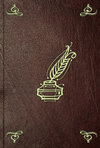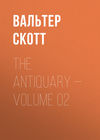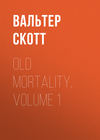Czytaj książkę: «Life of Napoleon Bonaparte. Volume V», strona 32
CHAPTER XCVII
Napoleon's Illness – viz. Cancer in the Stomach – Removal of Las Cases – Montholon's Complaints brought forward by Lord Holland – and replied to by Lord Bathurst – Effect of the failure of Lord Holland's motion – Removal of Dr. O'Meara from his attendance on Buonaparte – who refuses to permit the visits of any other English Physician – Two Priests sent to St. Helena at his desire – Dr. Antommarchi – Continued Disputes with Sir Hudson Lowe – Plans for Effecting Buonaparte's Escape – Scheme of a Smuggler to approach St. Helena in a Submarine Vessel – Seizure of the Vessel – Letter expressing the King of England's interest in the Illness of Napoleon – Consent of the latter to admit the visits of Dr. Arnott – Napoleon employs himself in making his Will – and gives other directions connected with his Decease – Extreme Unction administered to him – His Death, on 5th May, 1821 – Anatomization of the Body – His Funeral.
ILLNESS
Reports had been long current concerning the decline of Buonaparte's health, even before the battle of Waterloo; and many were disposed to impute his failure in that decisive campaign, less to the superiority of his enemies than to the decrease of his own habits of activity. There seems no room for such a conclusion: The rapid manner in which he concentrated his army upon Charleroi, ought to have silenced such a report for ever. He was subject occasionally to slight fits of sleepiness, such as are incident to most men, especially after the age of forty, who sleep ill, rise early, and work hard. When he landed at St. Helena, so far did he seem from showing any appearance of declining health, that one of the British grenadiers, who saw him, exclaimed, with his national oath, "They told us he was growing old; – he has forty good campaigns in his belly yet, d – n him!" A speech which the French gentlemen envied, as it ought, they said, to have belonged to one of the Old Guard. We have mentioned Captain Hall's account of his apparent state of health in summer 1817; that of Mr. Ellis, about the same period, is similar, and he expresses his belief that Buonaparte was never more able to undergo the fatigues of a campaign than at the moment he saw him. Yet at this time, viz. July, 1817, Napoleon was alleging the decline of his health as a reason for obtaining more indulgence, while, on the other hand, he refused to take the exercise judged necessary to preserve his constitution, unless a relaxation of superintendence should be granted to him. It is probable, however, that he himself felt, even at that period, the symptoms of that internal malady which consumed his life. It is now well known to have been the cruel complaint of which his father died, a cancer, namely, in the stomach, of which he had repeatedly expressed his apprehensions, both in Russia and elsewhere. The progress of this disease, however, is slow and insidious, if indeed it had actually commenced so early as 1817. Gourgaud, at a much later period, avowed himself a complete disbeliever in his illness. He allowed, indeed, that he was in low spirits to such an extent as to talk of destroying himself and his attached followers, by shutting himself and them up in a small apartment with burning charcoal – an easy death, which Berthollet the chemist had, it seems, recommended. Nevertheless, "on the subject of General Buonaparte's health, General Gourgaud stated, that the English were much imposed upon; for that he was not, as far as bodily health was concerned, in any degree materially altered, and that the representations upon this subject had little, if any, truth in them. Dr. O'Meara was certainly the dupe of that influence which General Buonaparte always exercises over those with whom he has frequent intercourse, and though he (General Gourgaud) individually had only reason de se louer de Mr. O'Meara, yet his intimate knowledge of General Buonaparte enabled him confidently to assert, that his state of health was not at all worse than it had been for some time previous to his arrival at St. Helena."
Yet, as before hinted, notwithstanding the disbelief of friends and foes, it seems probable that the dreadful disease of which Napoleon died, was already seizing upon the vitals, though its character was not decisively announced by external symptoms. Dr. Arnott, surgeon to the 20th regiment, who attended on Napoleon's death-bed, has made the following observations upon this important subject:
"We are given to understand, from great authority,262 that this affection of the stomach cannot be produced without a considerable predisposition of the parts to disease. I will not venture an opinion: but it is somewhat remarkable, that he often said that his father died of scirrhus of the pylorus; that the body was examined after death, and the fact ascertained. His faithful followers, Count and Countess Bertrand, and Count Montholon, have repeatedly declared the same to me.
"If, then, it should be admitted that a previous disposition of the parts to this disease did exist, might not the depressing passions of the mind act as an exciting cause? It is more than probable that Napoleon Buonaparte's mental sufferings in St. Helena were very poignant. By a man of such unbounded ambition, and who once aimed at universal dominion, captivity must have been severely felt.
"The climate of St. Helena I consider healthy. The air is pure and temperate, and Europeans enjoy their health, and retain the vigour of their constitution, as in their native country."
Dr. Arnott proceeds to state, that notwithstanding this general assertion, dysentery, and other acute diseases of the abdominal viscera, prevailed among the troops. This he imputes to the carelessness and intemperance of the English soldiers, and the fatigue of the working parties; as the officers, who had little night duty, retained their health and strength as in Europe.
"I can therefore safely assert," continues the physician, "that any one of temperate habits who is not exposed to much bodily exertion, night air, and atmospherical changes, as a soldier must be, may have as much immunity from disease in St. Helena as in Europe; and I may therefore farther assert, that the disease of which Napoleon Buonaparte died was not the effect of climate."
In support of Dr. Arnott's statement, it may be observed, that of Napoleon's numerous family of nearly fifty persons, English servants included, only one died during all their five years' residence on the island;263 and that person (Cipriani, the major-domo) had contracted the illness which carried him off, being a species of consumption, before he left Europe.
Dr. Arnott, to whose opinion we are induced to give great weight, both from the excellence of his character and his having the best opportunities of information, states that the scirrhus, or cancer of the stomach, is an obscure disease; the symptoms which announce it being common to, and characteristic of, other diseases in the same region; yet he early conceived that some morbid alteration of the structure of the stomach had taken place, especially after he learned that his patient's father had died of scirrhus of the pylorus. He believed, as already hinted, that the disease was in its incipient state, even so far back as the end of the year 1817, when the patient was affected with pain in the stomach, nausea, and vomiting, especially after taking food; which symptoms never left him from that period, but increased progressively till the day of his death.
From this period, therefore, Napoleon was in a situation which, considering his great actions, and the height of his former fortunes, deserved the compassion of his most bitter enemies, and the sympathy of all who were disposed to take a moral lesson from the most extraordinary vicissitude of human affairs which history has ever presented. Nor can we doubt that such reflections might have eventually led to much relaxation in the severity with which the prisoner was watched, and, it may be, at length to his entire emancipation. But to attain this end, it would have been necessary that Napoleon's conduct, while under restrictions, should have been of a very different character from that which he thought it most politic, or felt it most natural, to adopt. First, to obtain the sympathy and privileges due to an invalid, he ought to have permitted the visits of some medical person, whose report might be held as completely impartial. This could not be the case with that of Dr. O'Meara, engaged as he was in the prisoner's intimate and even secret service, and on the worst terms with the governor; and Napoleon's positive rejection of all other assistance seemed to countenance the belief, however unjust, that he was either feigning indisposition, or making use of some slight symptoms of it to obtain a relaxation of the governor's vigilance. Nor was it to be supposed that Dr. Antommarchi's evidence, being that of an individual entirely dependent on Napoleon, could be considered as more authentic, till corroborated by some indifferent, and, at the same time, competent medical authority.
Secondly, It is to be remembered, that the fundamental reason on which Napoleon's confinement was vindicated, was, that his liberty was inconsistent with the tranquillity of Europe. To prove the contrary, it would have been necessary that the Ex-Emperor should have evinced a desire to retreat from political disputes, and shown symptoms of having laid aside or forgotten those ambitious projects which had so long convulsed Europe. Compassion, and the admiration of great talents, might then have led the states of Europe to confide in the resigned dispositions of one, whom age, infirmities, and sufferings, appeared to incline to dedicate the remainder of his days to ease and retirement, and in whom they might seem a sure guarantee for his pacific intentions. But so far were such feelings from being exhibited, that every thing which emanated from St. Helena showed that the Ex-Emperor nourished all his former plans, and vindicated all his former actions. He was not satisfied that the world should adopt the opinion that his ambition was allayed, and his pretensions to empire relinquished. On the contrary, his efforts, and those of the works into which he breathed his spirit, went to prove, if they proved any thing, that he never entertained ambition of a culpable character – that his claims of sovereignty were grounded upon national law and justice – that he had a right to entertain them formerly, and that he was disposed and entitled to assert them still. He was at pains to let the world know that he was not altered in the slightest degree, was neither ashamed of his projects, nor had renounced them; but, if restored to Europe, that he would be in all respects the same person, with the same claims, and little diminished activity, as when he landed at Cannes to recover the empire of France.
This mode of pleading his cause had the inevitable consequence of confirming all those who had deemed restrictions on his freedom to be necessary in the outset (and these were the great majority of Europe,) in the belief that the same reasons existed for continuing the restraint, which had originally caused it to be imposed. We are unwilling to revert again to the hackneyed simile of the imprisoned lion; but certainly, if the royal animal which Don Quixotte desired to set at liberty, had, instead of demeaning himself peaceably and with urbanity, been roaring, ramping, and tearing the bars of his cage, it may be questioned whether the Great Redresser of Wrongs himself would have advocated his freedom.
LAS CASES
In November 1816, Napoleon sustained a loss to which he must have been not a little sensible, in the removal of Count Las Cases from his society. The devoted attachment of the Count to his person could not be doubted, and his age and situation as a civilian, made him less apt to enter into those feuds and quarrels, which sometimes, notwithstanding their general attachment to Napoleon, seemed to have arisen among the military officers of the household of Longwood. He was of a literary turn, and qualified to converse upon general topics, both of history and science. He had been an emigrant, and understanding all the manœuvres and intrigues of the ancient noblesse, had many narrations which Napoleon was not unwilling to listen to. Above all, he received and recorded every thing which was said by Napoleon, with undoubting faith and unwearied assiduity. And, like the author of one of the most entertaining books in the English language (Boswell's Life of Johnson,) Count Las Cases thought nothing trivial that could illustrate his subject. Like Boswell, too, his veneration for his principal was so deep, that he seems to have lost, in some cases, the exact perception of right and wrong, in his determination to consider Napoleon as always in the right. But his attachment, if to a certain degree tending to blind his judgment, came warm from his heart. The count gave a substantial mark, also, of his sincerity, in dedicating to his master's service a sum of £4000, or thereabout, his whole private fortune, which was vested in the English funds.264
For our misfortune, as also for his own, since he must have considered his separation from Buonaparte as such, Count Las Cases had been tempted into a line of conduct inconsistent with the engagement he had come under with the other attendants of the Ex-Emperor, not to hold secret communication beyond the verge of the island. The opportunity of a servant of his own returning to England, induced him to confide to the domestic's charge a letter, written upon a piece of white silk, that it might be the more readily concealed, which was stitched into the lad's clothes. It was addressed to Prince Lucien Buonaparte. As this was a direct transgression, in a most material point, of the conditions which Count Las Cases had promised to observe, he was dismissed from the island and sent to the Cape of Good Hope, and from thence to Europe.265 His Journal remained for some time in the hands of Sir Hudson Lowe; but, as we had formerly occasion to mention, alterations and additions were afterwards made, which, in general, are more vituperative of the governor, than the manuscript as it originally stood when the Count left St. Helena. The abridgement of the Count's stay at the island was much to be regretted, as his Journal forms the best record, not only of Napoleon's real thoughts, but of the opinions which he desired should be received as such. Unquestionably, the separation from this devoted follower added greatly to the disconsolate situation of the Exile of Longwood; but it is impossible to suppress the remark, that, when a gentleman attached to Napoleon's suite found himself at liberty thus to break through a plighted engagement in his chief's behalf, it sufficiently vindicated Sir Hudson Lowe for putting little faith in the professions made to him, and declining to relax any reasonable degree of vigilance which the safe custody of his prisoner seemed to demand.
The complaints of Napoleon and his followers produced, as they ought to have done, an inquiry into the personal treatment of the Ex-Emperor, in the British Parliament; when the general reasoning which we have hinted at, joined to the exposure which ministers afforded of the exaggerated representations that had been made in the statements which had come from St. Helena, were found greatly to preponderate over the arguments of Napoleon's compassionate and accomplished advocate, Lord Holland.
LORD HOLLAND'S MOTION
The question came before the House of Lords, on 18th March, 1817.266 Lord Holland, in a speech of great good sense and moderation, disowned all attempts at persuading the House, that the general line of policy adopted with respect to Napoleon should be changed. It had been adopted in contradiction to his (Lord Holland's) sentiments, but it had been confirmed by Parliament, and he did not hope to obtain a reversal of their judgment. But, if the confining Napoleon was, as had been alleged, a measure of necessity, it followed that necessity must limit what necessity had created, and of course that the prisoner should be treated with no unnecessary harshness. His lordship did not presume to state the reports which had reached him as absolute matters of fact, but only as rumours which demanded an inquiry, where the honour of the country was so nearly concerned. Most of the allegations on which Lord Holland grounded his motion, were contained in a paper of complaints sent by General Montholon. The particulars noticed in this remonstrance were circumstances which have been already adverted to, but may be here briefly noticed, as well as the answers by the British Government.
First, the restrictions upon the exercising ground formerly allowed to Napoleon, was alleged as a grievance. The climate of St. Helena, Lord Holland admitted, was good, but his lordship complained that the upper part of the island, where Longwood was situated, was damp and unhealthy. The inconvenience of the house was also complained of.
Lord Bathurst, the colonial secretary of state, replied to this charge, that the general accounts of Longwood described it as healthy. It had been the usual country residence of the lieutenant-governor, which went far to show that the site could not be ineligible. The situation had been preferred by Napoleon himself, who was so impatient to take possession of it, that he even wished to have pitched a tent there till the house could be cleared for his reception. The restriction of the bounds of exercise, he explained to have been caused by Napoleon's evincing some disposition to tamper with the inhabitants. He still had a circuit of eight miles, within which he might range unattended and uncontrolled. If he wished to go farther, he was at liberty to traverse the island, upon permitting an orderly officer to join his suite. His refusal to take exercise on such terms, was not the fault of the British Government; and if Napoleon's health suffered in consequence, it was the result not of the regulations, which were reasonable and indispensable, but of his own wilfulness in refusing to comply with them.
The second class of exceptions taken by Lord Holland, was against what he considered as the harsh and iniquitous restrictions upon the exile's communication with Europe. He was not, his lordship stated, permitted to obtain books, or to subscribe for journals and newspapers. All intercourse by letter was interdicted to the distinguished prisoner, even with his wife, his child, and his nearest and dearest relatives. He was not allowed to write under seal to the Prince Regent.
Upon these several topics Lord Bathurst answered, that a list of books, the value of which amounted to £1400 or £1500 (which General Montholon termed a few books,) had been sent by Napoleon to Britain; that the commissioners put this list into the hands of an eminent French bookseller, who had supplied as many as could be obtained in London and Paris, but several of them, chiefly works on military matters, could not be procured. The volumes which could be procured, had been sent, with an apology for the omission of those which were not to be gotten; but the residents of Longwood had not admitted the excuse. Respecting the permission of a free subscription by Napoleon to journals, Lord Bathurst deemed it his duty to place some restriction upon that species of indulgence, attempts having been detected to establish a correspondence with Napoleon through the medium of newspapers. On the subject of intercourse with Europe by letter, Lord Bathurst stated that it was not interdicted, unless by the condition that Sir Hudson Lowe should previously be permitted to read the letter, whether of business or otherwise. This right, Lord Bathurst stated, had been exercised only by the governor in person, and with strict delicacy and feeling; and he repelled, with the most flat contradiction, the assertions of Montholon, that the governor of St. Helena had broken open and detained letters, under pretence that they did not come through the channel of the English minister. Lord Bathurst said, that General Montholon had been challenged by Sir Hudson Lowe to produce a single instance of such tyranny having been permitted, but that the French general had remained silent, the assertion being absolutely false. All the letters which the relatives of Napoleon were disposed to send through his, Lord Bathurst's office, he said, should be instantly forwarded, but it was a necessary preliminary that such should be written. Now, a letter from his brother Joseph, which was received in October last, and instantly forwarded, was the only one from any of his family or relatives which had reached the office. His lordship then adverted to the regulation which enacted, that even a letter to the Prince Regent must pass through the governor of St. Helena's hands in an open state. Lord Bathurst explained that the regulation gave the governor no authority or option as to transmitting the letter, which he was directed to forward instantly. The rule only required that Sir Hudson Lowe should be privy to the contents, in order, that, if it should contain any impeachment of his conduct, his defence or apology might reach London as soon as the accusation. This, his lordship remarked, was necessary, in order that no time might be lost in redressing a complaint of a grave character, or in repelling any frivolous and unsubstantial charge. He added, that should any sealed letter be addressed to the Prince Regent by Napoleon, he, Lord Bathurst, would have no hesitation to open it, if the governor had not previously done so. He should conceive it to be his duty to forward it instantly as addressed, whenever he was acquainted with the contents; but being in his department responsible for the acts of the sovereign, he would feel it his duty to make himself previously acquainted with the nature of the communication.
Thirdly, Lord Holland touched on the inadequacy of the sum allowed for the maintenance of Napoleon, and on the unworthiness of making that personage contribute to bear his own charges. The ministers, his lordship stated, having placed him in a situation where great expense was necessary, turned round upon him, and insisted that he should himself be in a great measure at the charge of supporting it.
Lord Bathurst replied by stating the facts with which the reader is already acquainted. He mentioned, that the sum of £8000 had been fixed upon as adequate, after the heavy expenses of the first year; and that it was increased to £12,000 on the remonstrance of Sir Hudson Lowe. This allowance, he said, was the same given to the governor, who had to bear the cost of frequent entertainments. It did not appear to government, that the family of Napoleon, which was to be maintained on the footing of that becoming a general officer of distinction, ought to cost more than that of Sir Hudson Lowe, who actually held that condition, with the necessity of discharging the expenses of his staff, and all other incumbent disbursements. He gave some details on the subject of the provisions and the cellar, from which it appeared, that, besides the inferior species of wine, the table of Napoleon was supplied at the rate of two bottles daily of those of a superior quality for each individual.
Lord Holland concluded with stating, that although Queen Mary could be no otherwise regarded than as the bitterest enemy of the illustrious Elizabeth, yet the greatest stain upon the memory of the latter sovereign was not the unjust, for unjust it was not, but the harsh and ungenerous treatment of Mary. He reminded the House, that it would not be considered by posterity, whether Buonaparte had been justly punished for his crimes, but whether Great Britain had acted in that generous manner which became a great country. He then moved for the production of such papers and correspondence betwixt St. Helena and the British Government, as should seem best fitted to throw light on the personal treatment of Napoleon.
It may be observed, that in the candid and liberal manner in which Lord Holland stated the case, he was led into a comparison unfavourable to his own argument. To have rendered the case of Mary (the justice of which his lordship admitted, in questioning its generosity) parallel to that of Napoleon, two remarkable circumstances were wanting. First, Mary, far from being at war with Queen Elizabeth, was ostensibly on the most friendly terms with that sovereign when she took refuge in England; secondly, the British Ministry testified no design to finish Napoleon's confinement by cutting off his head.
Lord Darnley, who had concurred with Lord Holland in desiring an inquiry, now considered the reports alluded to as totally refuted by the candid and able statement of Lord Bathurst, and was not of opinion that Lord Holland should press the motion farther. The Marquis of Buckingham's opinion was founded on the broad ground of Napoleon's delinquencies towards Europe, and England in particular. He was of opinion, that every degree of restraint necessary to prevent his escape, should be imposed and enforced. The severe and close durance to which General Buonaparte was subjected, was not, his lordship said, dictated by motives of revenge, but of security. It was a piece of political justice which we owed to Europe, and the defeat of which would never be forgotten in this or in any other state of the civilized world.
The motion of Lord Holland does not appear to have been seconded, and was negatived without a division.
There can be no doubt that the failure of this effort in the British Senate had a deep effect on Napoleon's spirits, and may, perhaps, have aggravated that tendency to disease in the stomach, which was suspected to have already taken place. Nothing is better known, though perhaps few things are more difficult to be satisfactorily explained, than the mysterious connexion betwixt distress of mind and the action of the digestive powers. Violent sickness is produced on many persons by extreme and sudden affliction, and almost every one feels the stomach more or less affected by that which powerfully and painfully occupies the mind. And here we may add, that Lord Holland's kindness and compassion for so great a man, under such severe circumstances, were shown by a variety of delicate attentions on his part and that of his lady, and that the supplies of books and other articles sent by them through the Foreign Office, where every facility was afforded for the conveyance, continued from time to time to give Napoleon assurance of their sympathy. But though he gratefully felt their attentions, his distress of body, and perhaps of mind, assumed a character incapable of receiving consolation.
This unhappy state was kept up and prolonged by the extent to which Buonaparte indulged in determined opposition to the various regulations respecting the custody of his person; on which subject every thing which occurred occasioned a struggle against the authority of Sir Hudson Lowe, or a new effort to obtain the Imperial distinctions which he considered as due to his rank.
The last point seems to have been carried to the length of childish extravagance. It was necessary, for example, that Dr. O'Meara should report to the governor of the island the state of the prisoner's health, which began to give room for serious apprehension. Napoleon insisted, that when this bulletin was rendered in writing, O'Meara, whom he considered as in his own service, should give him the title of Emperor. It was in vain that the Doctor remonstrated, pleading that the instructions of Government, as well as the orders of Lieutenant-General Lowe, prohibited him from using this forbidden epithet; and it was with difficulty that he at last prevailed that the word Personage or Patient might be substituted for the offensive phrase of General Buonaparte. Had this ingenious device not been resorted to, there could have been no communication with the Government on the subject of Napoleon's health.
The physician of Napoleon had till now enjoyed an easy office. His health was naturally sound; and, like many persons who enjoy the same inestimable advantage, the Ex-Emperor doubted of the healing powers of medicines which he never needed to use. Abstinence was his chief resource against stomach complaints, when these began to assail him, and the bath was frequently resorted to when the pangs became more acute. He also held it expedient to change the character of his way of living, when he felt affected with illness. If it had been sedentary, he rode hard and took violent exercise; and if, on the contrary, he had been taking more exercise than usual, he was accustomed to lay it aside for prolonged repose. But more recently he had not the wish to mount on horseback, or take exercise at all.
About the 25th of September, 1817, Napoleon's health seems to have been seriously affected. He complained much of nausea, his legs swelled, and there were other unfavourable symptoms, which induced his physician to tell him that he was of a temperament which required much activity; that constant exertion of mind and body was indispensable; and that without exercise he must soon lose his health. He immediately declared, that while exposed to the challenge of sentinels, he never would take exercise, however necessary. Dr. O'Meara proposed calling in the assistance of Dr. Baxter, a medical gentleman of eminence on Sir Hudson Lowe's staff. "He could but say the same as you do," said Napoleon, "and recommend my riding abroad; nevertheless, as long as the present system continues, I will never stir out." At another time he expressed the same resolution, and his determination to take no medicines. Dr. O'Meara replied, that, if the disease should not be encountered by remedies in due time, it would terminate fatally. His answer was remarkable: "I will have at least the consolation that my death will be an eternal dishonour to the English nation, who sent me to this climate to die under the hands of * * * *." The physician again represented, that, by neglecting to take medicine, he would accelerate his own death. "That which is written is written," said Napoleon, looking up. "Our days are reckoned."267




















